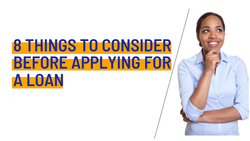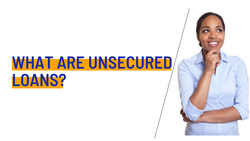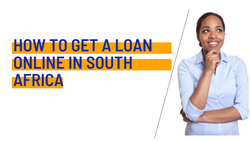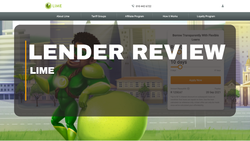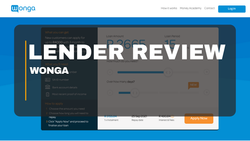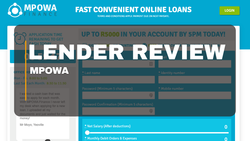Personal loans and credit cards are popular borrowing options. If you need extra cash, it’s important to understand the difference between the two types of loans, so you can make the right financial decision.
Overall, a personal loan is a better option if you need a large lump sum of money, while credit cards are more suited for smaller, everyday expenses. But there’s more you need to know.
PERSONAL LOAN VS CREDIT CARD
The biggest difference between a personal loan and a credit card is that a personal loan gives you a lump sum while a credit card gives you ongoing access to cash up to a limit.
With a personal loan, you pay back the money over a fixed period, and you have to submit a new application if you need extra cash again. However, you only apply once with a credit card, and you get access to a limited pool of funds.
For instance, if your credit limit is R50,000, you can only borrow any amount up to this limit. However, you can pay it back and then borrow it again as many times as you wish. You don’t receive the money all at once, but you can use money from the account whenever you need to.
This type of loan is called revolving credit because you have long-term access to cash as long as you pay your minimum monthly payment.
Let’s look at more differences between personal loans and credit cards.
REPAYMENT PERIOD
Personal loans have a fixed term that generally ranges from 1 to 5 years. You pay monthly instalments until you pay the loan in full.
On the other hand, credit cards don’t have a fixed repayment period. As mentioned, you can maintain the cycle of borrowing money and paying it back for as long as you wish.
To keep your account in good standing, you’ll need to make minimum monthly payments until you settle your debt.
WHEN TO USE
Personal loans and credit cards usually have different uses. A personal loan is a better option if you want money for a large expense or payment.
For instance, some popular uses for personal loans include debt consolidation, medical bills, weddings, or a holiday. In short, a personal loan gives you the lump sum of cash you need to achieve some big goals.
In contrast, credit cards work better for everyday expenses that require smaller amounts of cash. Common reasons for taking out credit cards include paying small bills or making purchases at a supermarket or clothing store.
Credit cards are also handy in emergencies and can be a lifesaver if you need a short-term loan to cover unexpected expenses.
INTEREST RATES AND FEES
Whether you take out a personal loan or use a credit card, you have to pay interest on top when you pay back the money. The total cost of your loan also increases because of loan charges and fees.
Personal loans generally have a lower interest rate than credit cards. There are two types of personal loans – secured and unsecured. Secured loans can come with an even lower rate because you have to offer security for the loan, which reduces the lender’s risk.
With unsecured loans, the interest rate on your loan is usually determined by your credit score, and the higher the score, the lower your rate. In addition, personal loan interest rates tend to be fixed, meaning the rate you get remains the same throughout the life of the loan.
As mentioned, credit cards are usually more expensive than personal loans, but they sometimes have a grace period that allows you to borrow money with zero interest. But once the promotional period expires, you’ll have to pay interest on any amount you borrow. Also, keep in mind that the rate may be variable, and this makes your payments unpredictable.
PROS OF PERSONAL LOANS
Lump-sum payment. You get one lump sum, and you can use it to cover a large financial need.
Wide range of uses. A personal loan can be used for almost any purpose, so it’s a more popular option if you need extra cash.
Lower interest rate. Personal loans offer some of the lowest rates on the market, especially if you have a high credit score.
Fixed monthly payments. Your monthly instalments stay the same, making them easier to budget for. In addition, you can choose the best loan term that matches your budget for affordable monthly instalments.
CONS OF PERSONAL LOANS
Once-off lump sum. Once you receive funds, you’ll have to apply for another loan if you need more money down the line.
Interest rates can be high. Although you may hear that personal loans have lower rates than credit cards, the interest rate can also be higher if you have a poor credit score. What’s more, the loan can end up being expensive if the fees and charges are high.
May require collateral. Sometimes, you can only qualify for a loan if you offer collateral, such as your car or home. That means you can potentially lose your assets if you default.
PROS OF CREDIT CARDS
Offers ongoing credit. You only apply for credit once and can keep using and repaying the money without applying each time.
Comes with rewards. Credit cards sometimes come with various benefits, such as cash back bonuses, flyer miles, and travel insurance. So you benefit more by charging purchases to a credit card.
More convenient than cash. It’s easier and sometimes safer to carry a card instead of cash.
Helps to build credit. You can take out a credit builder card to improve your credit score by making the minimum instalments on time over a long period.
Gives you peace of mind. Unexpected expenses can come from anywhere. Knowing you can use your card to pay for urgent expenses without applying for a new loan gives you more peace of mind.
CONS OF CREDIT CARDS
High interest rates. Credit card interest rates are generally higher than personal loan interest rates. The fees can also add up, making this option expensive.
Easy to become over indebted. If you don’t use your credit card responsibly, it’s easy to end deep in debt because of the high interest rates.
Limited use. A credit card only makes sense if you need to make a non-cash payment or purchase. While it’s possible to withdraw cash from an ATM using your credit card, this typically comes with expensive charges. Additionally, credit cards tend to have a lower credit limit.
HOW TO CHOOSE BETWEEN A PERSONAL LOAN AND A CREDIT CARD
After considering the pros and cons of a personal loan vs credit card, you may still be wondering what your final decision will be. Here’s a general guideline to help you reach the best decision.
A personal loan is right for you if:
You have a good credit score since you can qualify for a low interest rate.
Need to finance a large, one-time expense.
You want to consolidate debt.
You want a long-term loan that gives you cash in your bank account.
A credit card is right for you if:
You find a card with an interest free promotion.
Need to finance smaller, everyday expenses that you can charge to your credit card.
You’re planning to pay your debt quickly to avoid accumulating interest.
You want a short term loan.
You’re planning to use the credit card responsibly and can avoid the temptation to charge unnecessary and expensive items to your card.
TAKE THE NEXT STEPS
Whether you apply for a personal loan or credit card, you still get the extra cash you need to fill some financial gaps. Before you apply for a loan, be sure to explore and compare all your options. Once you know which option is right for you, look at factors like interest rates and fees, plus more.
Ready to start comparing? Fill in our MyLoan application form and get several offers from top lenders. You can then choose the one that fits your needs and budget. It’s free, and there’s no obligation.
How much do you need?
Get a Loan up to R500 000
Representative example: Myloan is an online loan comparison tool and not a credit provider. We only work with NCR-registered credit providers in South Africa. Our comparison service to consumers is free of charge. Estimated repayments on a loan of R30 000 over 36 months at a maximum annual interest rate of 28% would be R1 360 per month including an initiation fee and monthly service fees. Interest rates charged by credit providers may, however, start as low as 11%. Repayment terms can range from 6 to 72 months.

















